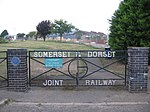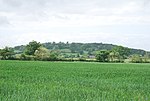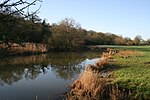Sturminster Newton

Sturminster Newton is a town and civil parish in the Blackmore Vale area of Dorset, England. It is situated on a low limestone ridge in a meander of the River Stour. The town is at the centre of a large dairy agriculture region, around which the town's economy is built. The larger part of the town (Sturminster) lies on the north side of the river, and includes most shops and services, whilst to the south is the smaller Newton. Between these two areas is a wide flood plain. The town was the home of poet and author William Barnes, and, for part of his life, Thomas Hardy. The town has shops, a primary and secondary school, and a school and college catering for children with Special educational needs. In the 2011 census the town's civil parish had a population of 5,234. A market is held in the town on Mondays. One of the largest cattle markets in England used to be held here, but it was closed in 1998 and now in its place stands a housing estate and a 300-seat community arts centre called The Exchange. The town is part of the historic West Country Carnival circuit. The town also has the nickname of 'the heart of the Blackmore vale' due to its central location within that area.
Excerpt from the Wikipedia article Sturminster Newton (License: CC BY-SA 3.0, Authors, Images).Sturminster Newton
Geographical coordinates (GPS) Address Nearby Places Show on map
Geographical coordinates (GPS)
| Latitude | Longitude |
|---|---|
| N 50.9261 ° | E -2.3051 ° |
Address
DT10 1AS , Sturminster Newton
England, United Kingdom
Open on Google Maps






